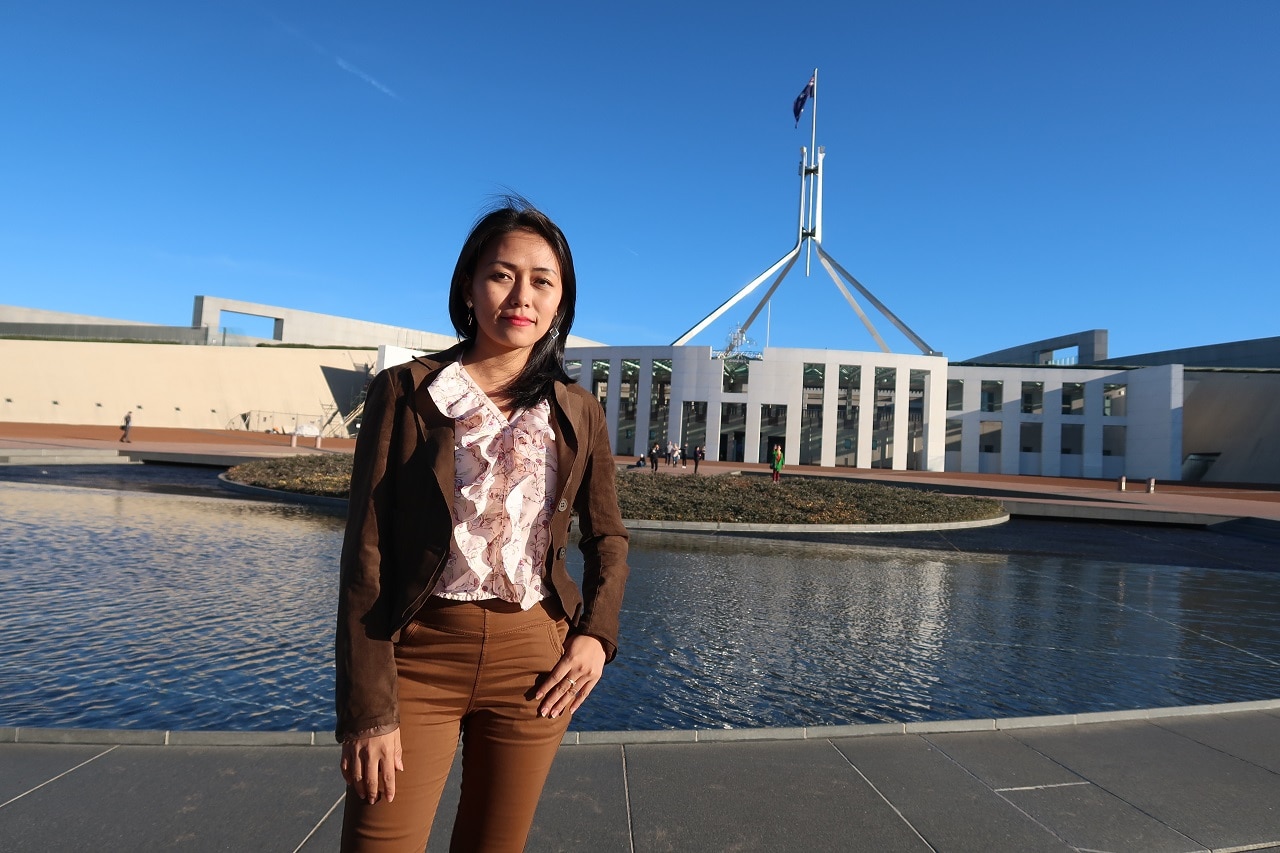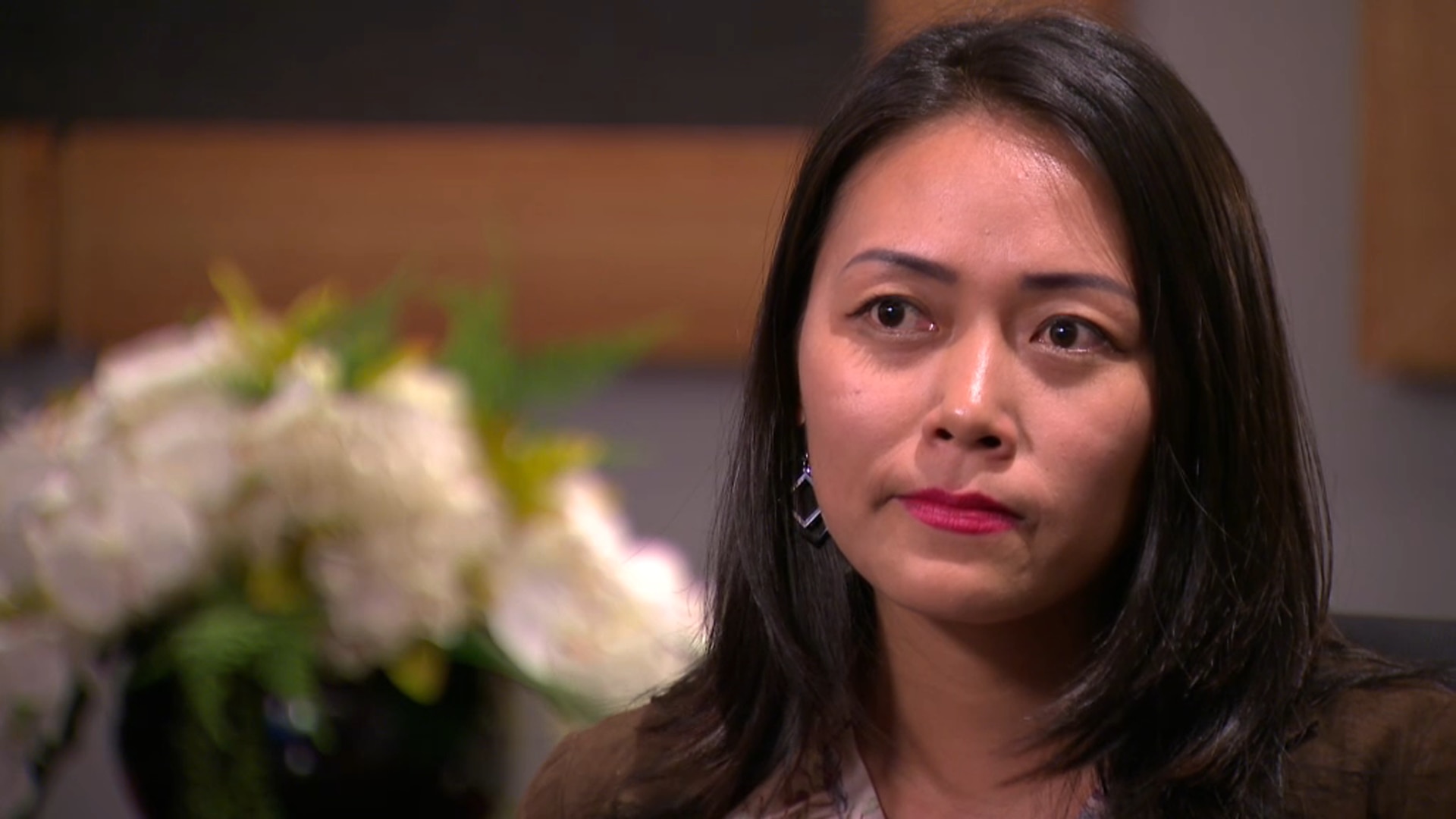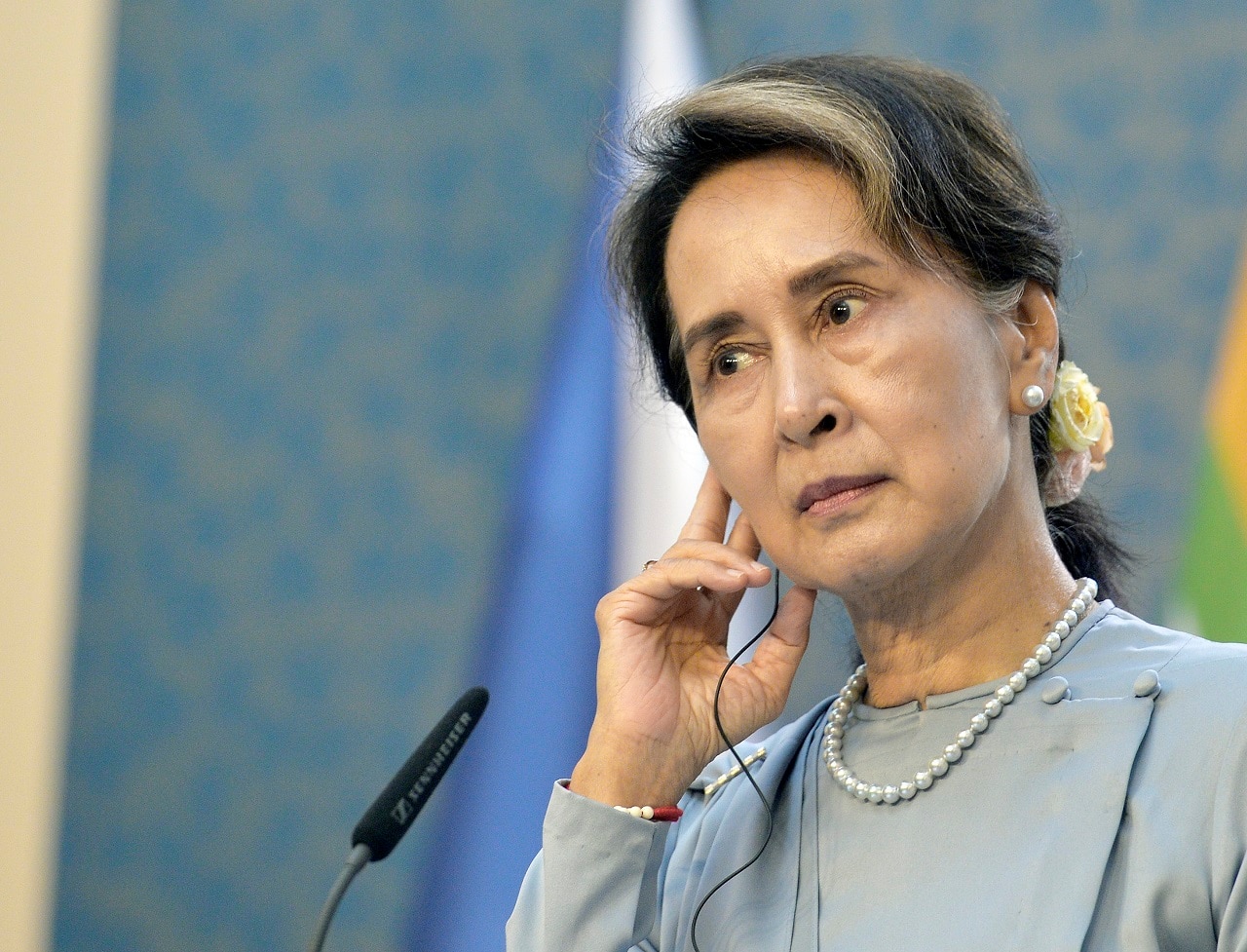UN Security Council Should Ensure Justice for All Victims of Myanmar Violence

Smoke is seen rising from Burma's Taung Pyo Let War village from across the border in Bangladesh.
© 2017 Private
UN Security Council Should Ensure Justice for All Victims of Myanmar Violence

Smoke is seen rising from Burma's Taung Pyo Let War village from across the border in Bangladesh.
© 2017 Private
A newly released independent report, headed by former Guatemalan Foreign Minister Gert Rosenthal, concludes, in the maddeningly diplomatic jargon of the institutions, that the UN System overall has been "relatively impotent to effectively work with the authorities of Myanmar, to reverse the negative trends in the areas of human rights, and consolidate the positive trends in other areas." This translates into English as: The UN has allowed Myanmar to execute genocide against the Rohingya of Rakhine state.
How? The first culprit, as always, has been the UN's Security Council, where Russia and China predictably vetoed an otherwise very strong and unusually popular resolution to censure Myanmar for the human rights abuses in the country, particularly those against the Rohingya. Russia is in a pattern of undermining everything that can be seen as a "Western" initiative, wherever it can, on the basis that doing so undermines American capacity to project power globally. China, meanwhile, is currently building a channel of its Belt and Road Initiative through Myanmar, and it increasingly looks to Myanmar as a client state in its sphere of influence — where, naturally, it does not wish to see any "Western meddling."
But even the apolitical institutions of the UN System itself have found themselves at odds with the UN's overall mission. The UN System is made up of a sprawling array of different subgroups, with different remits, different specific missions and few, if any, formal channels of communication through which to coordinate a common response to events or crises on the ground.
This is especially clearly demonstrated in the Rohingya crisis, where the groups working on human rights monitoring — like, for example, the UN High Commissioner for Refugees — have done a broadly good job of identifying the problems on the ground and warning the rest of the UN of the impending humanitarian disaster, even before it started to unfold in earnest. The patterns of state violence and systematic exclusion that are almost always reliable predictors of genocide had been observed against the Rohingya in Myanmar for decades, and they had been understood as incontrovertible and urgent since at least 2012, a full five years before the "clearing operations" carried out by the armed forces of Myanmar in Rakhine state started in August 2017.
The political paralysis at the top of the UN dictates that there should be institutional paralysis below.
Dr. Azeem Ibrahim
But, while the humanitarian agencies were raising the alarm, the UN resident coordinator in Myanmar from 2014 until late into 2017, Renata Lok-Dessallien, was merrily focusingon building "positive" relationships between the UN and other Western parties, with complete disregard for the unfolding humanitarian violations, and with little concern even for Myanmar's continued stonewalling of other UN efforts to monitor and respond to the developing humanitarian crisis.
The problem, however, is that it would not even be entirely fair to lay the blame for all that has happened in Myanmar on one problematic country mission coordinator. For the country missions often have the same pattern of behavior, not just in Myanmar, but in many other problematic countries. It is not all that uncommon for these country missions to focus more on reconstruction contracts for international companies after some kind of disaster has happened, rather than to focus on preventing these kinds of disasters in the first place.
But the reason this is so is also by design. The political paralysis at the top of the Security Council permeates all the way down, in such a way that the only consensus that is consistently found throughout the UN is that responsibilities be shirked, that nobody should be responsible and have the power to actually intervene, and that money be spent. The political paralysis at the top dictates that there should be institutional paralysis below.
In the wake of the Rohingya genocide, the UN cannot even protest that such disasters should "never again" be allowed to happen. Even after their failures in Rwanda and Bosnia, that promise seemed doubtful. But now, the institutional impotence of the UN System is laid completely bare. And, while I hope the humanitarian groups within the UN continue their work, let no one be under the illusion that their work will have any bearing on the outcomes for the world's most oppressed peoples — certainly not so long as the broken Security Council has anything to say about it.
The United Nations is condemning itself over its handling of the crisis involving Myanmar's Rohingya minority. Over the past decade, nearly 1 million Rohingya have escaped violence and persecution in Myanmar. The mass exodus attracted worldwide attention and criticism over the UN's role.
UN Secretary-General António Guterres called for an independent review covering eight years of the UN's response to the crisis. The report, which came out this week, concluded that while Myanmar's government was mainly responsible for the human rights abuses, the UN had systemic failures that shared responsibility.
John Sifton is the Asia advocacy director for Human Rights Watch. He shared his thoughts with The World's Carol Hills about what exactly went wrong with the UN's handling of the Rohingya crisis.
Carol Hills: John, according to the review, what did the UN get wrong?
John Sifton: The United Nations made several of the same errors that they've made in previous catastrophes. They've failed to elevate human rights concerns to the leadership level and buried information that humanitarians on the ground had gathered at great risk. Keep in mind, this is the second time there's been a report like this in the context of a mass killing. If the UN is ever going to fix these problems, it has to hold people accountable for their individual failures.
Related: Myanmar: Invest here, please. Don't mind the insurgents.
When was the first time this happened?
The reason that this is such an unpleasant deja vu is because a similar— and much more scathing — report was issued after the 2009 violence in Sri Lanka that claimed the lives of tens of thousands of people at the end of Sri Lanka's civil war. That report was even more scathing than this report and resulted, unfortunately, with no serious reforms.
This review is pretty scathing. It uses terms like "obviously dysfunctional performance," "a culture of mistrust" and "mixed and incomplete signals coming from the field." Can you be more clear on what happened here? Do people go to a supervisor and say, "This is what's going on the ground," and then the supervisor just ignores it? What was happening?
The UN It's not a monolithic institution. There are separate agencies and what essentially happened here is that key officials at certain departments, like the people tasked with the humanitarian and emergency response and the people tasked with human rights, had their inputs ignored or suppressed by what they call the coordinator on the ground. That was resulting in poor information flowing into New York at the leadership level.
Why was this happening? Why was the information not being passed on?
It's a systemic problem, not just for the United Nations, but within the humanitarian world. Because of the quest for access to populations with needs, everything is sacrificed. We will censor ourselves and we will go soft on this country so that we can preserve our access to those vulnerable populations that need. Now, it's understandable that there's desire to get access to populations in need, but it can't come at the larger expense of being strong on human rights. That is the lesson of Sri Lanka that was disregarded in this [context]. That is the lesson of the past that they failed to heed in Burma.
Related: A spoken word poet in Myanmar speaks out against hate and injustice
What were the consequences of that?
The consequences are that you now have a situation where Burma has learned that they can be recalcitrant and obdurate and get away with it. It's been asked if others are to blame and absolutely the United Nations is not alone. Member states who were concerned about the killings failed to press the United Nations and many countries, although they spoke about their outrage at what was going on, failed to bond together and lay down tough terms to the Myanmar government. They needed to say, "If you don't start cooperating with the United Nations there are going to be real-world consequences: sanctions, travel bans and the like." So, it's not just the UN, it's the UN and its member-states that failed to hold Burma's feet to the fire.
So, what now? We've got this information, how do we avoid this happening again?
The real lesson is that individual UN staff who suppress human rights reporting and fail to allow human rights investigators to properly brief the leadership need to be held accountable and not promoted or not shuffled into a new post at some other country, but fired.
This interview has been edited and condensed for clarity.
From PRI's The World ©2019 PRI
Twenty-seven-year-old Thinzar Shunlei Yi is one of several youth activists in the Southeast Asian nation pushing her government to better deliver for its people.
Myanmar transitioned from military rule to quasi-democracy in 2015. But while visiting Australia this week, Thinzar Shunlei Yi told SBS News her country has a very long way to go.
"I want [Myanmar to] embrace humanity, democracy and human rights," she told SBS News in an exclusive interview.
 Thinzar Shunlei Yi in Canberra. SBS News.
Thinzar Shunlei Yi in Canberra. SBS News."I have been sharing my dream with other young people, so they can be inspired."
The former school teacher turned TV host is a leading figure in the youth movement within Myanmar, a country that has recently been accused of targeting ethnic minorities and censoring journalists.
She is facing a possible prison sentence after organising a peaceful, anti-civil war protest in May last year.
"Having water cannons trying to disperse the crowd … I felt like we were being treated like the biggest criminals ever.
"We're just young women trying to raise our voices for peace in Myanmar."
 Thinzar Shunlei Yi talks to SBS News. SBS News
Thinzar Shunlei Yi talks to SBS News. SBS NewsShe said growing up, democracy activist Aung San Suu Kyi was her idol.
"I am who I am right now because of what she was saying about human rights and democracy," she said.
But that changed when Aung San Suu Kyi became State Counsellor, or Myanmar's de-facto leader, after the country's historic 2015 elections.
Since then, the Noble Peace Prize winner has been accused by rights groups of being complicit in military-led civil conflicts, including a crackdown on the Rohingya people.
"[The new government] didn't meet our expectations and that disappoints us," Thinzar Shunlei Yi said.
 Aung San Suu Kyi in June. AAP
Aung San Suu Kyi in June. AAPShe said there are also many challenges of being a young woman speaking out against the government.
"As a young female activist, I get a lot of backlash and discrimination," she said.
Her 10-day visit to Australia coincided with this week's raid of the ABC by the Australian Federal Police.
"[This] not a new thing to me, it happens all the time back in my country … but in Australia," she said.
Asked if she has plans to run in Myanmar's 2020 election, she said, "I have a dream, of course, to be in the politics but right now I feel I don't want to be locked up in the system, that system is a failed system".
Burma Campaign UK today called on Facebook to remove more than 25 Burmese military linked Facebook Pages on its site.
The Pages are either run by the military, or by military-owned or controlled companies, or exactly reproduce military propaganda but may not be directly run by the military. The Myanmar Air Force Facebook Page even has a blue tick showing it has been verified by Facebook.
Facebook has recently faced severe criticism from the United Nations, US Congress and British Parliament for failing to take action to prevent its platform being used to spread hatred and incite violence against the ethnic Rohingya and Muslims in Burma.
Despite closing some military Facebook Pages, including the page for Min Aung Hlaing, the head of the military, Facebook has left several official military pages on its site. It is hosting an organisation the United Nations has stated should be prosecuted for genocide. The military Facebook Pages, with close to 300,000 followers, can be used at any time to incite hatred and build support for further military offensives against ethnic and religious minorities.
The United Nations Fact-Finding Mission has stated that doing business with the military is indefensible and called for the financial isolation of the military, yet Facebook hosts 22 Facebook Pages for military-owned and controlled businesses, enabling them to promote their business in order to increase profits which go to the military.
"Facebook should not be hosting any form of Burmese military accounts, said Mark Farmaner, Director of Burma Campaign UK. "Whether the Facebook Pages are spreading military propaganda or promoting military-owned business, either way they are promoting part of an institution responsible for genocide, war crimes and crimes against humanity."
Facebook has also failed to fully implement the nine recommendations made to it by the United Nations Fact-Finding Mission on Myanmar, including on a genuinely independent investigation into how posts on their platform have led to real world discrimination and violence.
Facebook has been placed on the 'Dirty List' published by Burma Campaign UK because of its failure to implement the UN Fact-Finding Mission recommendations, its hosting of Burmese military pages, and its hosting of racist and discriminatory posts and pages by the Burmese government.View the Dirty List here.
Despite claims it is committed to tackling hate speech, Facebook has refused to take down the Information Committee Page of the Burmese government. This Page, which at the time was called the State Counsellors Information Committee Page, instigated fear and hatred of the Rohingya ahead of and during the 2017 military offensive. Even more so than Min Aung Hlaing's Facebook Page. Facebook also refuses to take down the 'Fake Rape' sign on this Facebook page, part of a government campaign denying that rapes were taking place, despite this being verified by the United Nations and numerous other legal, media and human rights organisations.
Information Committee page:
https://www.facebook.com/InfomationCommittee/
One of the posts using the racist term Bengali to refer to the Rohingya:
https://www.facebook.com/InfomationCommittee/posts/786270838212691?
Another one of the posts using the racist term Bengali to refer to the Rohingya:
https://www.facebook.com/InfomationCommittee/posts/788328661340242?__tn__=K-R
One of the times the Information Committee Page featured an story implying the UN was helping ARSA, inciting hatred of the UN and endangering aid workers: https://www.facebook.com/InfomationCommittee/photos/a.639477959558647/786189564887485/?type=3&theater
Fake Rape picture on Information Committee Page:
https://www.facebook.com/InfomationCommittee/photos/a.639477959558647/660386870801089/?type=3&theater
List of Military Pages:
Myanmar Air Force (has blue tick)
Myo Chit Myanmar Army (There is nothing except Tatmadaw)
List of Military-owned or controlled companies:
(This is not a comprehensive list and there may be more military-controlled companies on Facebook).